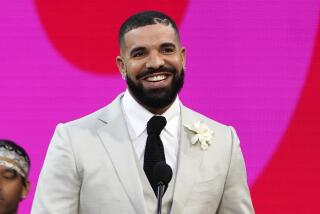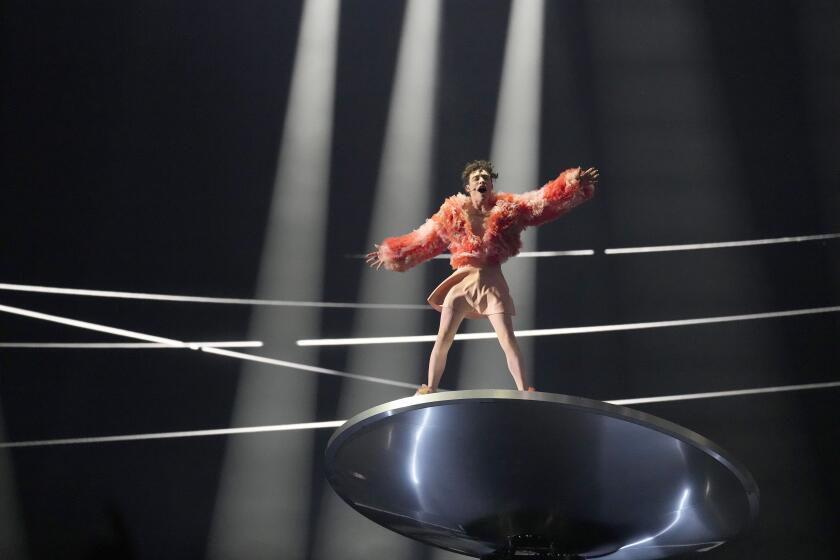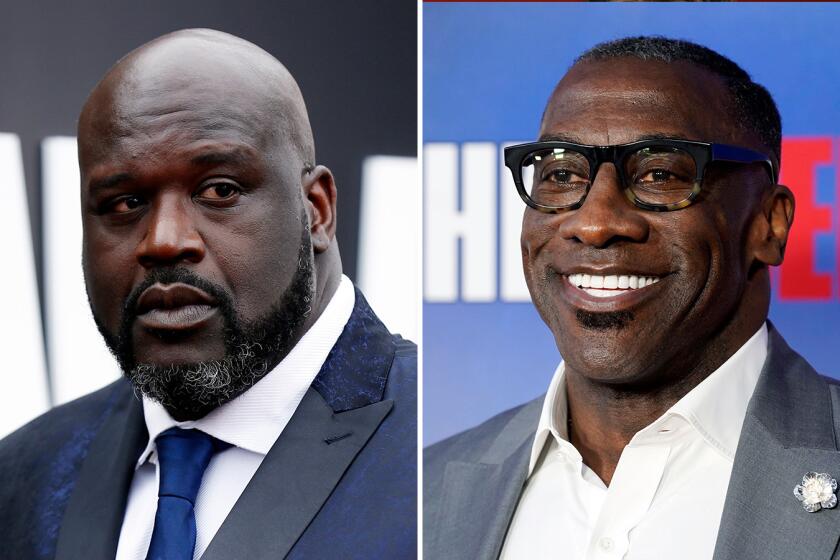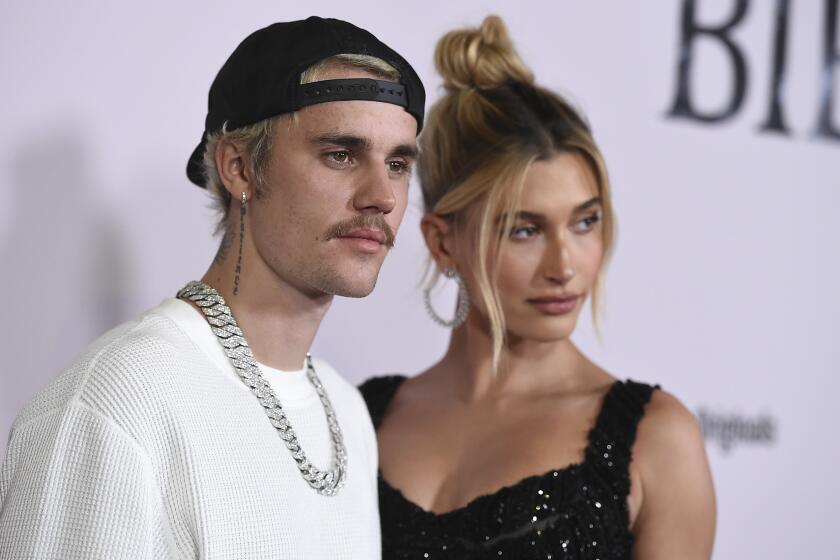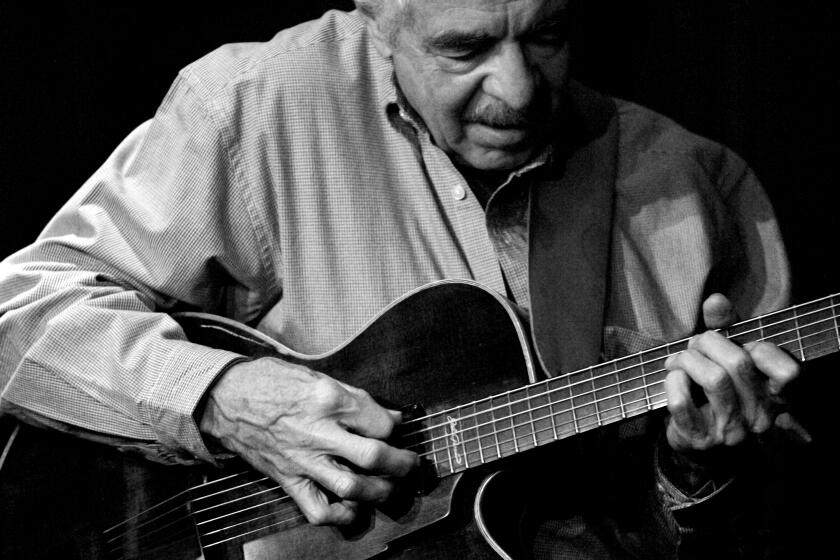‘Jazzvisions’: Stop, Look and Give a Listen
The music world is undergoing a technological revolution that will ultimately find every recording session doubling with a video version, or vice versa. Take for example the items in the “Jazzvisions” series (reviewed below), which are believed to be the first ever released simultaneously in five configurations: laser disc (CDV), VHS cassettes, compact discs, LPs and cassettes.
***** BOBBY SHORT “At the Cafe Carlyle” View/Video 1307
Clocking in at 75 minutes and 25 songs, this live session is a double delight, interspersing the music with short stops at the singer’s mid-town New York apartment, where he reminisces with informative, informal wit.
The tunes jump from Harlem hip (seven have Harlem-related themes) to Broadway to Havana (Irving Berlin’s “I’ll See You in C-U-B-A”). Now and then he lights up the room with an obscure oddity like “On the Amazon,” or Cole Porter’s “Pilote Moi.” Short’s piano is much more than mere self-accompaniment; he is quite simply the all-around, ultimate cabaret artist, with the three essentials of his craft: Savoir chanter, savoir jouer and, most important of all, savoir faire. This was taped in 1979 but it’s as fresh as tomorrow’s newspaper.
**** JAMES MOODY, ET AL. “The Many Faces of Bird” Jazzvisions/Polygram
Produced live at the Wiltern Theatre in Los Angeles by Jack Lewis two years ago, the “Jazz-visions” videocassette series was promptly issued in Japan and has since been acquired for U.S. release by Polygram, where an oddly incompetent job has been done. Not only are there no liner notes, but often the composer and arranger credits are missing and there are obvious personnel errors. (On the companion CD versions, the sound level had been so reduced that, even with the volume control at maximum, it was barely adequate.) Musically, however, there is much of value.
Four alto saxophonists pay tribute to Charlie Parker here: James Moody and Bud Shank, both in top form; Richie Cole, less inspired but competent; and Lee Konitz, who is scarcely heard from except in a few brief exchanges.
The main point of interest for many viewers will be Bobby McFerrin, the chest-thumping vocal bopper who communicates good vibes in his guest appearances.
Sound, camera work and the colorful stage setting are commendable. The tunes are all Parker originals except for “April in Paris,” based on his recorded version. The backup rhythm team is Lou Levy (piano), Monty Budwig (bass) and John Guerin (drums).
**** 1/2 ANTONIO CARLOS JOBIM “Rio Revisited” Jazzvisions/Polygram 081 331-3
Modestly equipped as a singer, but compensating a thousandfold with personal charm and his unmatched track record as songwriter, Jobim here takes us back to the golden days of bossa nova. He offers 13 of his best-known works (and a 14th written and sung by his son, Paulo), backed up by five singers who are visual, as well as vocal, charmers. This is a good investment if only for the joy of hearing him sing “Waters of March,” with what were the first lyrics he ever wrote in English. “Agua de Beber” in Portuguese and “Desafinado” in English are among the other delights. Gal Costa, a guest on three numbers, is at best pleasant, at times flat (on “Dindi”) and doesn’t try to tackle the low notes on “Wave.” Still in all, this is a wonderfully laid-back example of Jobim, Brazil’s unique gift to the Americas.
**** 1/2 BILLIE HOLIDAY, ET AL. “The Ladies Sing the Blues” View/Video 1313
Despite the mistitling (only five of the 16 tunes are blues), this is a priceless collection by a dozen singers--some of whose careers began almost a century ago. Filmed in black-and-white, the program begins with a segment of Bessie Smith’s 1929 short, “St. Louis Blues,” then moves on to Ethel Waters singing “Darkies Never Dream,” a song and interpretation--she is wearing a bandanna and is seated at a washtub--that gives you an idea of how antiquated some of these clips are.
The longest and most valuable item is the seven-minute, 1957 version of “Fine and Mellow” by a beautiful, unforgettably-moving Billie Holiday; her verses are interspersed with solos by Lester Young, Coleman Hawkins and other giants. Ida Cox, a revered blueswoman, is strangely lackluster in her one song, while Dinah Washington’s two numbers give some idea of her unique personal impact. Two numbers each by Lena Horne (with washed out film that looks like third-generation copy), and two by Peggy Lee (looking admiringly at her guitarist-husband, Dave Barbour) all have their place in history, as do numbers by Rosetta Tharpe, Sarah Vaughan and Helen Humes.
This would have been a five-star item but for the infuriating use of a narrator, who often overlaps the singing; in fact, Connee Boswell is almost through with her song by the time he stops talking.
More to Read
The biggest entertainment stories
Get our big stories about Hollywood, film, television, music, arts, culture and more right in your inbox as soon as they publish.
You may occasionally receive promotional content from the Los Angeles Times.

